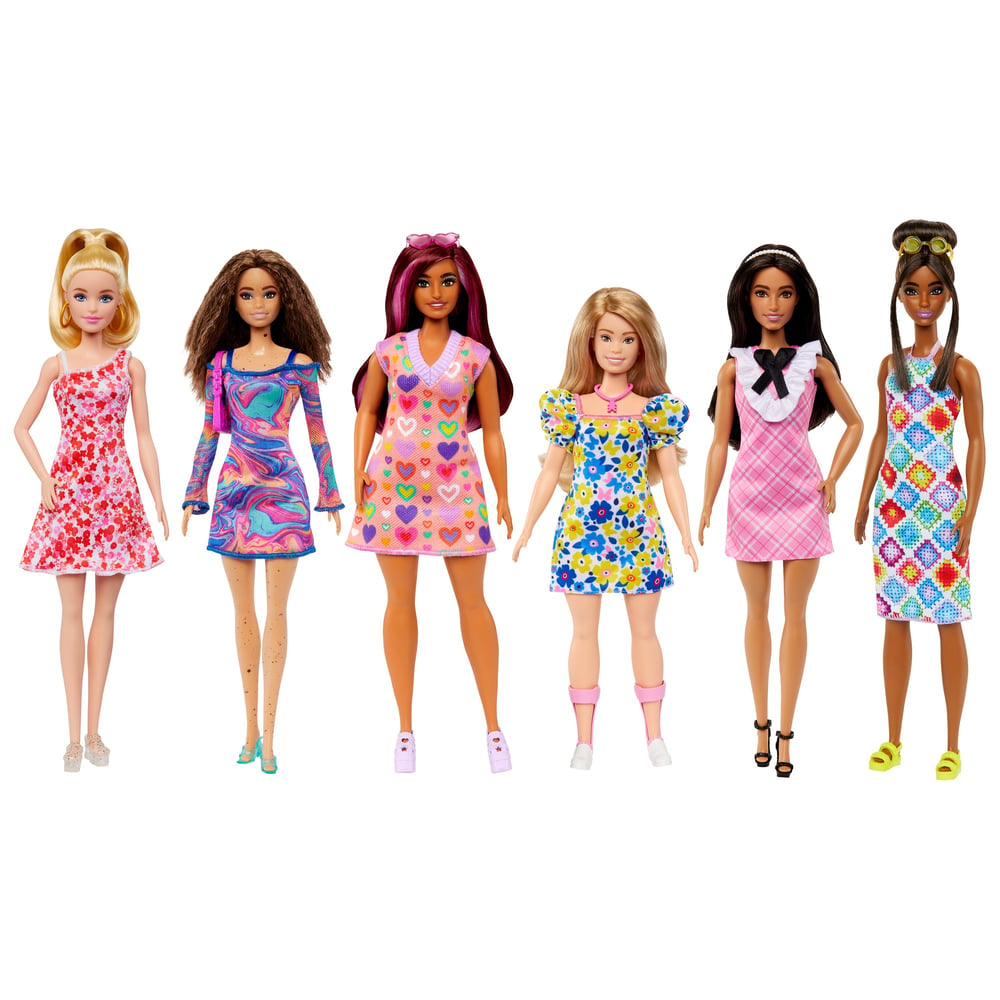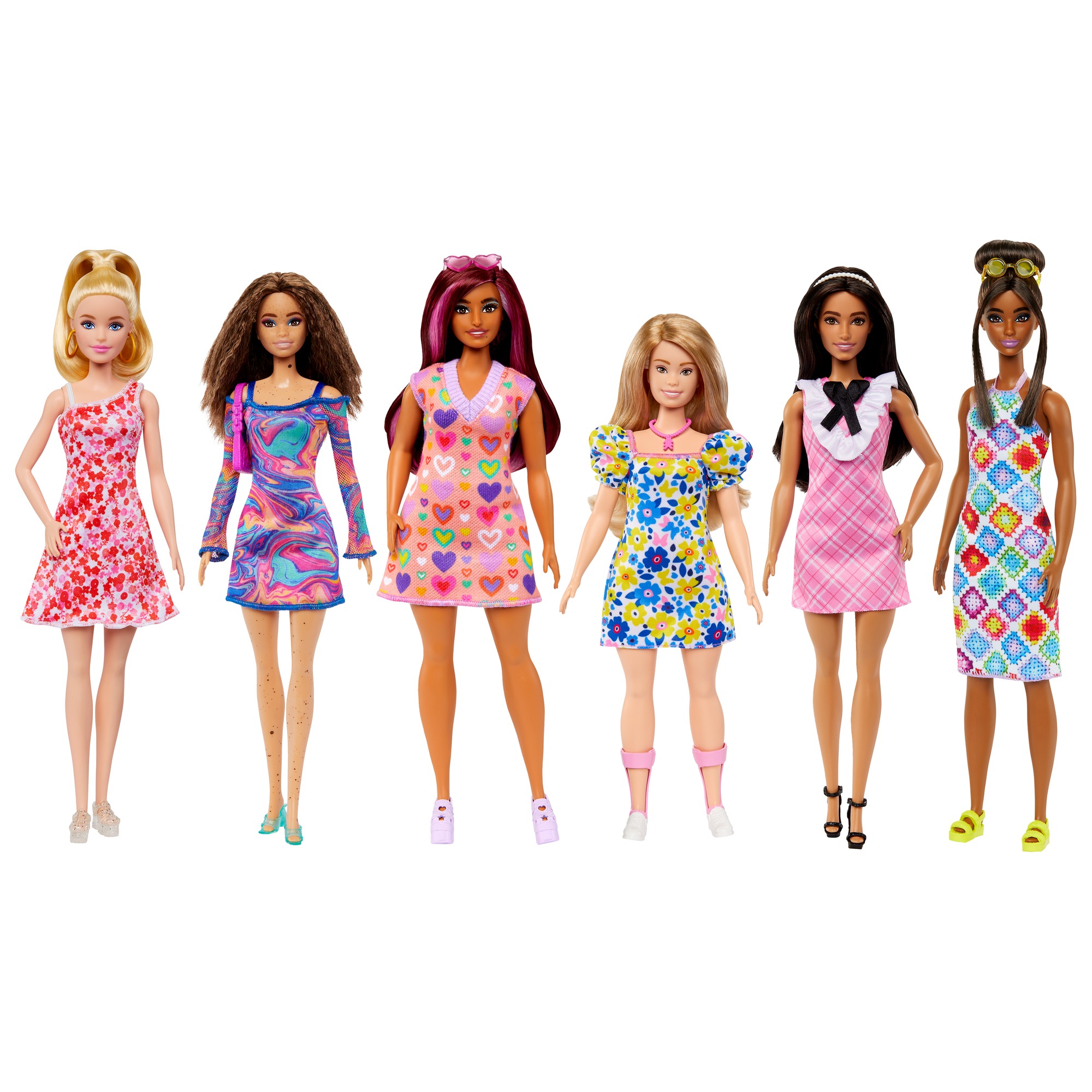Barbie Breaks Boundaries: Meet the Doll That's Changing the Toy Industry Forever!
Story May 21, 2023 12:00:00 AM jamar-jones 3 min read

Mattel's recent announcement of the addition of a Barbie doll with Down syndrome is a significant step forward in promoting inclusivity and representation in the toy industry. This move demonstrates Mattel's commitment to ensuring that children from all walks of life can see themselves reflected in their toys, fostering a sense of belonging and acceptance.
The Barbie doll with Down syndrome has been carefully designed in collaboration with the National Down Syndrome Society (NDSS) to accurately represent individuals with Down syndrome. The doll's physical features, such as the rounder face, smaller ears, and almond-shaped eyes, are reflective of the traits commonly associated with Down syndrome. This attention to detail ensures that children with Down syndrome can finally play with a Barbie doll that looks like them, fostering a sense of empowerment and inclusion.
By involving the NDSS in the design process, Mattel has shown a deep commitment to understanding the real-world experiences of individuals with Down syndrome. This partnership has resulted in a doll that not only resonates with the Down syndrome community but also educates others about the condition. The incorporation of symbols associated with Down syndrome awareness, such as butterflies and specific colors, further reinforces the message of inclusion and understanding.
Moreover, the Barbie doll with Down syndrome wears ankle foot orthotics (AFOs) and sports a pendant necklace with three upward chevrons. These design choices serve to represent the experiences of individuals with Down syndrome, showcasing the diversity within the community and providing a sense of recognition and pride.
This groundbreaking initiative by Mattel goes beyond merely diversifying their product line. It exemplifies the power of representation in shaping children's perceptions and fostering empathy. When children play with dolls like Barbie, they embark on imaginative journeys, and this play can play a crucial role in their social and emotional development. By introducing dolls that reflect the world's diversity, Mattel is helping to shape a more inclusive and accepting society.
Mattel's commitment to inclusivity extends beyond the Barbie doll with Down syndrome. Their diverse range of dolls includes representations of various disabilities, body types, and ethnicities. From dolls with vitiligo and dolls that use wheelchairs to dolls with hearing aids and prosthetic limbs, Mattel is creating a truly inclusive toy line that celebrates the uniqueness of every child.
The introduction of the Barbie doll with Down syndrome, along with the entire 2023 Fashionistas lineup, reinforces the notion that every child deserves to feel seen and valued. This initiative serves as an inspiration for other toy manufacturers to prioritize inclusivity in their designs, ensuring that children can embrace and celebrate their differences.
Mattel's efforts align with a broader societal shift toward inclusivity and acceptance. By embracing diversity in play, we can foster empathy, understanding, and a sense of belonging among children. This positive direction set by Mattel and the introduction of the Barbie doll with Down syndrome exemplify the transformative power of representation in shaping a more inclusive and compassionate world.
As we celebrate this important milestone, let us recognize the significance of diverse and inclusive toys in shaping young minds and encouraging a more accepting society. Mattel's commitment to celebrating inclusion through play sets an inspiring example for us all, reminding us of the importance of representation, empathy, and understanding. Together, we can create a world where every child feels valued, regardless of their differences.

About Mattel
Mattel is a leading global toy company and owner of one of the strongest catalogs of children’s and family entertainment franchises in the world. We create innovative products and experiences that inspire, entertain, and develop children through play. We engage consumers through our portfolio of iconic brands, including Barbie®, Hot Wheels®, Fisher-Price®, American Girl®, Thomas & Friends®, UNO®, Masters of the Universe®, Monster High® and MEGA®, as well as other popular intellectual properties that we own or license in partnership with global entertainment companies. Our offerings include film and television content, gaming and digital experiences, music, and live events. We operate in 35 locations and our products are available in more than 150 countries in collaboration with the world’s leading retail and ecommerce companies. Since its founding in 1945, Mattel is proud to be a trusted partner in empowering children to explore the wonder of childhood and reach their full potential. Visit us online at mattel.com.
About NDSS
The National Down Syndrome Society (NDSS) is the leading human rights organization for all individuals with Down syndrome. NDSS empowers individuals with Down syndrome and their families by providing resources, driving policy change, engaging with local communities, and shaping public perceptions. Founded in 1979, NDSS supports and advocates for the Down syndrome community by focusing on three key areas of programming: Resources & Support, Policy & Advocacy and Community Engagement. Within these focus areas NDSS engages in various activities, events and programs on topics that are critical to our community such as federal and state advocacy and public policy, health and wellness, education and employment. NDSS creates resources to support individuals with Down syndrome, their families and caregivers across the lifespan and hosts community events throughout the country including the National Buddy Walk® Program, the Times Square Video presentation and New York City Buddy Walk®, Racing for 3.21 for World Down Syndrome Day, Run for 3.21, and various other events. Visit www.ndss.org for more information.